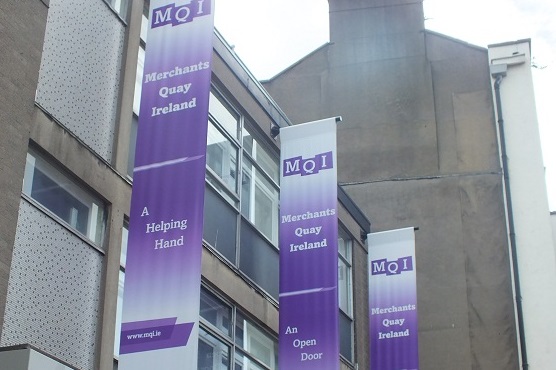Merchants Quay Ireland’s mental health team surpassed the total number of clients they worked with in 2016 by September, as the most hectic time for homeless charities approaches.
As their client base grows, the head of MQI’s mental health group, Derek Parker, said that Christmas is one of their busiest times, where many homeless people they work with present to the clinic in crisis.
“If you’re homeless and you’re not with your family, you’re not with loves ones, you don’t have a house, you’re dwelling on the things you’ve lost in your life – we do see a lot of people who become very low. It’s a very difficult time, a lot of our clients would be very isolated,” said Mr Parker.
Interventions
From 2015 to 2016 the number of clients the team helped increased by 8% to 315. By September this year 331 clients accessed the service, a figure set to rise over the Christmas season.
The team has provided 1712 interventions from January to September, which can be anything from 5-20min meetings to more substantial services and discussions with clients.
Mr Parker said: “So just around 10% of our interventions, 174, are what we call crisis interventions where a client has presented to service in crisis, to us that would mean the client was expressing suicidal ideation, they were acutely psychotic or they were extremely agitated.”
Whereas before many clients in crisis would have been sent to A&E, the relatively new team are trained to help – reducing the number of people accessing Ireland’s strained health service.
The staff use a suicide intervention model called STORM (Skills Training on Risk Management), to assess someone to see if their suicidal. They then work towards keeping the person safe and future plans to deal with their situation.
“A lot of that comes from clients not having the coping skills or strategies maybe that the general public would have, and that can be one of the reasons they fell into homelessness and why they don’t engage with statutory services such as GPs,” said Mr Parker.
Feelings of never being able to reconnect with family, regret for past actions or things lost and general hopelessness are what Mr Parker says many homeless people present with, especially around Christmas.


 Chai Brady
Chai Brady
